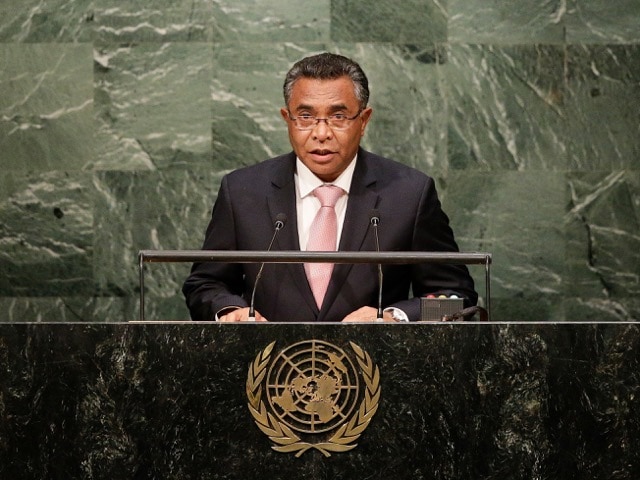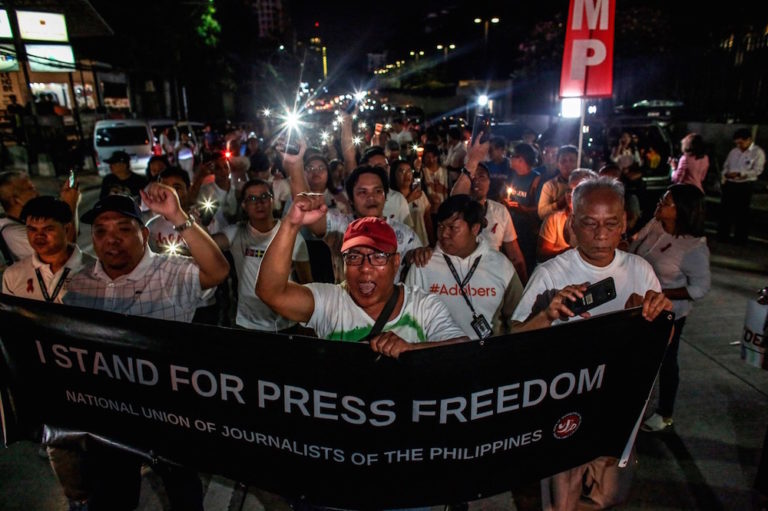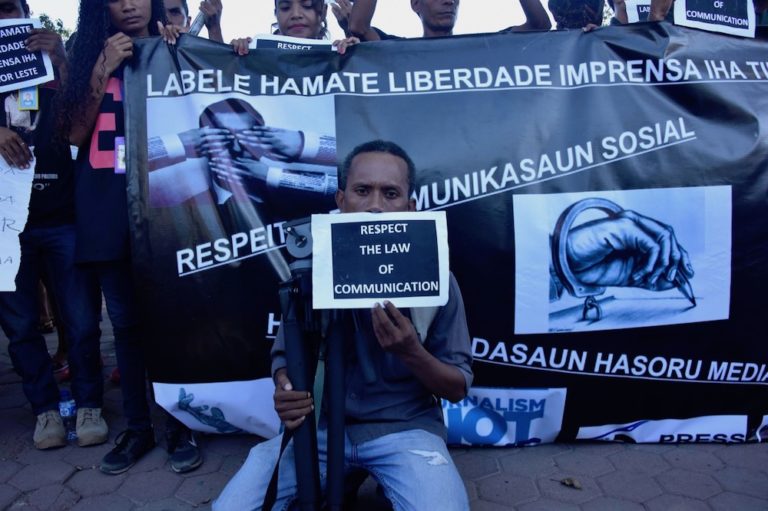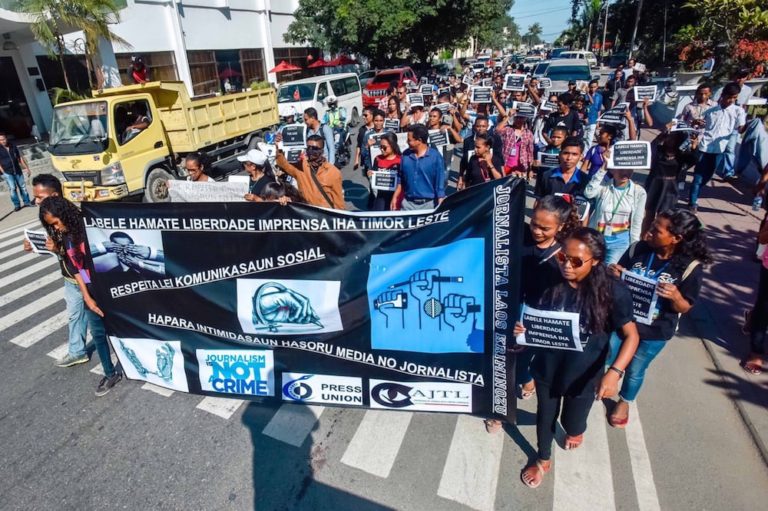Article 8 of the Timor Leste Press Law clearly protects the work of journalists, and states "The right of journalists to report shall be exercised on the basis of constitutional powers, may not be subjected to interference that threatens their independence and objectivity, freedom of establishment, and freedom of conscience."
This statement was originally published by SEAPA on 5 February 2016.
Timor Leste Prime Minister Rui Maria de Araujo filed a defamation lawsuit against a journalist in connection with an article alleging irregularities in a government computerization project.
Araujo filed the defamation suit against Raimundo Oki of the Timor Post. Oki wrote in an article published on 10 November 2015 that the Prime Minister, in a previous capacity as Advisor to the Minister of Finance, recommended the winning bid for a project to supply and install computer equipment to the new Ministry of Finance building in 2014.
The Timor Post published the Prime Minister’s reply to the article in the paper’s front page on 17 November 2015. The right of reply is guaranteed under Article 34 of the country’s new Press Law, Number 5 of 2014. Timor Post published a clarification of Oki’s report in its 18 November 2015 issue.
Despite these efforts of the publication, the defamation suit was still filed against Oki, who received a notice of the case on 22 January 2016.
Defamation for false accusations is a crime punishable for up to three years under Article 285 (1) of the Timor Leste Penal Code.
“The Prime Minister should lead by example on how to respect the country’s Press Law by recognizing that such reporting is part of the work of journalists,” said Felipe Belo, president of the Timor Leste Journalist Association.
Article 8 of the Timor Leste Press Law clearly protects the work of journalists, and states “The right of journalists to report shall be exercised on the basis of constitutional powers, may not be subjected to interference that threatens their independence and objectivity, freedom of establishment, and freedom of conscience.”
“If Oki made a error in reporting, it should be dealt with under the Press Law,” said Belo.
“The lawsuit is an act of criminalization of the work of journalists,” added Belo. The defamation case effectively ignores the application of the Press Law, as the specialized law that should address such cases, he explained.
Under the Press Law, such cases fall under the authority of the Press Council.
In 2013, Oki faced a defamation charge on another corruption case but was absolved by the court.
Timor Leste ranked 103rd out of 180 countries in the 2015 World Press Freedom Index of the Reporters Without Borders.



